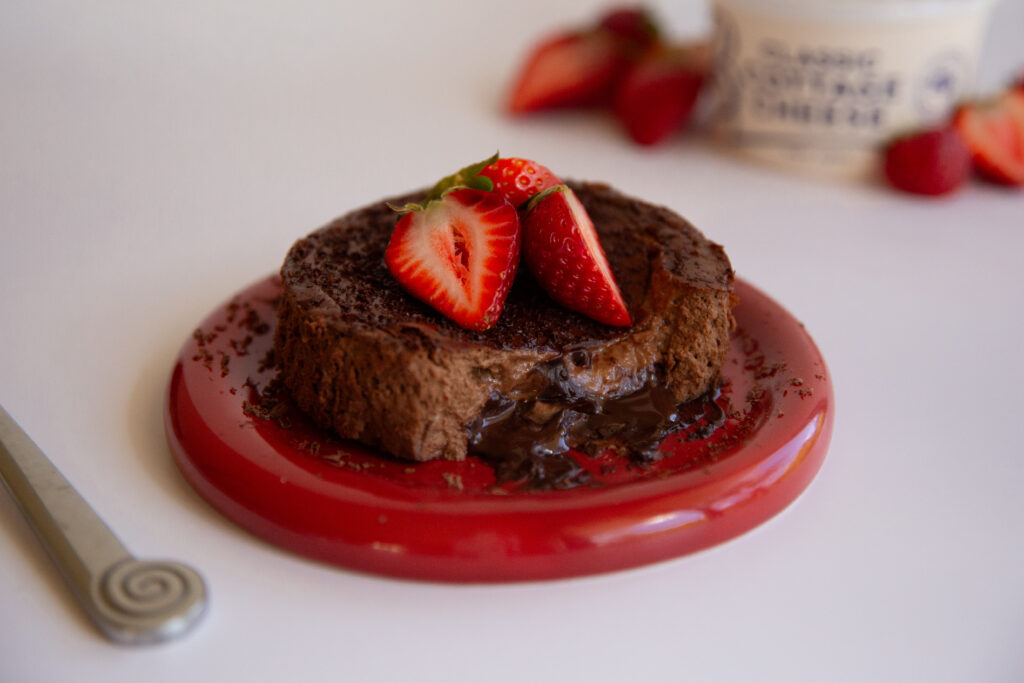
What is the cottage cheese origin? For many people, cottage cheese is a key refrigerator staple that helps to liven up their everyday meals. But did you know that this delicious product has a pretty fascinating backstory? It’s true. People have been eating cottage cheese for centuries, and over the years many theories have popped up about where and how the dairy product was first developed.
The name, too, has been a source of debate. So where does the name cottage cheese come from? In this post, we’ll separate fact from fiction.
Cottage Cheese Origin
The cottage cheese origin is somewhat mysterious, with no single, definitive starting point. One popular theory traces it back to the 3rd century BC in ancient Mesopotamia. According to this idea, early travelers may have accidentally discovered cheese curds while transporting milk in animal stomachs or leather pouches through the desert. The natural enzymes in the containers, combined with the intense heat, could have caused the milk to separate into curds and whey, creating an early version of what we now know as cottage cheese.
While this remains speculative, it is a plausible explanation for how cottage cheese may have come to be. The simplicity of the process, requiring no aging or specialized tools, suggests that variations of cottage cheese could have developed in several ancient cultures. Whatever the exact cottage cheese origin, it is clear that this fresh curd cheese has been enjoyed in different forms for thousands of years.
Unveiling the Name
So, where did the name cottage cheese come from? While the cottage cheese origin as a food dates back much further, we know for sure that the name itself goes back to at least 1831, when it was mentioned in Godey’s Lady’s Book. How well-known the name was at that time is unclear, but in any case, it marks the first recorded use of the term. As for how cottage cheese got its name, that’s a different matter altogether.
The Mystery Behind Cottage Cheese’s Name
Cottage cheese, when you think about it, is a pretty weird name for a food product. The cheese bit makes sense, but “cottage?” What’s that about? Where did the name cottage cheese come from?
We may disappoint you slightly here, since the exact cottage cheese origin, at least in terms of its name, is not fully understood. The leading theory is that it got its name because it was commonly made in people’s homes, often in country cottages, rather than in industrial settings. If that’s how the name came to be, we’re all for it. After all, small-batch cottage cheese tastes far better than mass-produced versions, as anyone who’s tried our cottage cheese can confirm!
Unravelling the Name’s History
Of course, ask someone else, “Where does cottage cheese get its name?” and you may well receive a different answer. Some believe that the term “cottage” was once a synonym for “poor,” making cottage cheese another entry in the long list of delicious foods created by the working class. Others think that “cottage” simply refers to the countryside, where the first batches were traditionally made. These theories add to the intrigue of the cottage cheese origin, which, while not entirely settled, continues to be a topic of culinary curiosity.
Conclusion
Ultimately, unless a Holy Grail document turns up that explicitly states how cottage cheese got its name and why, it’s unlikely that we’ll ever know for sure.
The good news is that though the history of cottage cheese may be unclear, its modern-day deliciousness and versatility are not. If you’re ready to sample cottage cheese made to the highest of standards and from the same recipe that has been handed down over four generations, then be sure to check out the cottage cheese we have available here at Brancourts.







